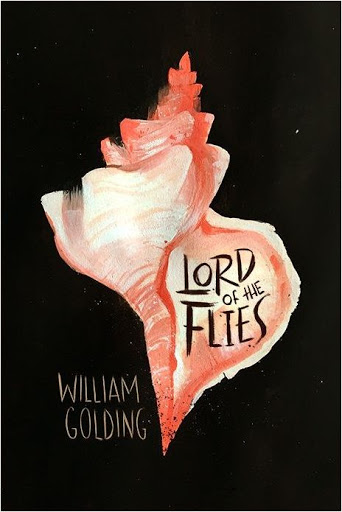Book #65
When a plane crashes on a remote island, a small group of schoolboys are the sole survivors. From the prophetic Simon and virtuous Ralph to the lovable Piggy and brutish Jack, each of the boys attempts to establish control as the reality - and brutal savagery - of their situation sets in.
I first read this book for school when I was sixteen; it blew me away then and continues to blow me away each time I read it. Rich in allegory, wonder, and provocation, Golding weaves a tale of schoolboys stranded on a desert island after their passenger plane was gunned down in the midst of war.
Despite the absence of age and life experience, with the boys ranging from the age of six up to only thirteen, a society is quickly formed. A leader is chosen, rules are established, and the boys quickly get to work on building shelter, hunting for food, and building a fire to attract the attention of any passing ships. They wonder what the grownups would do, and try to emulate this, they use their learned morals and behave sensibly and decently towards each other.
Soon, inevitably, pockets of the society descend into chaos, possibly sparked by the bloodlust and maniacal glee they experience whilst hunting pigs. The group then separates into two camps - one representing civilisation and morality, the other preferring savagery and mayhem.
Golding makes us think seriously about what would happen in a place where there is an absence of government - no rules, no expectations. Is there something primal in each of us which would spurn our ingrained standards? Would we too become animalistic, violent, protective? He compares the idea of civilisation with good, and disorder with evil, whilst still implying that evil is innate within all humans, and could almost be a default, even in wee kids.
Although there’s an excellent crew of main characters, each symbolising something different - the productive leader, the tyrant, the brain, the spiritualist - the rest of the boys are pretty interchangeable. There isn’t much to define them, even those few extras who are given names, with most of the boys just a cast of dirty faces and unbrushed hair.
And the ending is just incredibly ironic. I doubt I can spoil a book published in 1954, however upon their rescue, a grownup witnesses the carnage the boys are carrying out amongst themselves, and comments "I should have thought that a pack of British boys - you're all British, aren't you? - would have been able to put up a better show than that." Since the novel is set during a global war, there’s something really unsettling and hypocritical about this statement. It reminds us that although the boys attempted to think like grownups whilst still in their civilised stage, really they were behaving like the grownups even at their most vicious.
It’s a pretty terrifying read if you consider the political climate at the moment. The idea that anything can happen if the proper conditions are there is one which causes a chill, and Golding’s assertion that we all have that evil within us, even more so. It’s incredibly powerful, still relevant, and awfully, awfully human.
“We did everything adults would do. What went wrong?”

